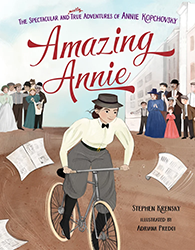To read Mountain Lines as a travelogue is a small mistake. The opening line is a warning: “I should say up front that, as far as grand adventure stories go, mine is neither especially grand — at least in terms of distance traveled — nor all that adventurous.” Arlan’s month-long hike from Lake Geneva through the French Alps to Nice is, instead, just a backdrop for the kind of interior trekking that makes a two-legged memoir worth reading.
On every page of sore feet and mud and hunger pains, there is a testament to the value of suffering — of forcing discomfort for the promise of relief. “How much cleaner would the sheets feel,” asks Arlan, a self-described “intensely lazy person,” if he took the hard way? “How much better would the bath feel? How much more miraculous would every sunny day seem after walking up into a thunderstorm and back down out of it?” If this book does nothing but raise awareness of the luxury of clean sheets in a world gone mad with new desires, it will not have been written in vain.
A certain kind of reader might throw the book at the wall when Arlan declines going skinny dipping with very pretty Swiss girls in a lake before dinner. Mostly, though, the youngish narrator on the cusp of a nominal transition (into His Thirties) is a trustworthy guide through a space that is open to everyone. In that space, his greatest discovery is entirely believable: “A kind of magic… from being so far from anything or anyone I knew.”
In one standout moment, Arlan lets a stranger take his picture. “I’m smiling and standing straight,” he says. “I look healthy, which is not at all how I felt. But pictures have a way of telling a better version of the truth, one that’s closer to an ideal than the actual memory could ever be.” It’s a compelling moment, however obvious it might be to those who remember trips without full photographic coverage. Words tell different stories, and, if we can trust Arlan’s self-reported feelings over the stranger’s snapshot, truer ones.
But there is a second edge to this kind of storytelling that is shared with photo albums: the deliberate curation of the traveler’s own experience. At one rest hut, Arlan thinks for a moment of recharting his route from Geneva to Genoa because the two cities’ names (probably) both come from the Celtic for bend. “God, I thought, that would make a great title.” At other moments, he’ll make a choice and note that “No one knew and no one cared.” At every bend, our narrator’s experience is oriented not just inwards, but out, towards us.
This is what Graham Greene called “The splinter of ice in the heart of every writer” — the distance a writer keeps from his own experience of the world. In memoir, the splinter is especially acute. Today, the ice is spreading far beyond the writer’s profession, to chill the lives touched by Snap Stories and Instagram Stories and Facebook “My Day” updates. Mountain Lines plays a wonderful role in this conversation: What does it mean to craft and confront our own narratives? Arlan’s trek is the simplest form of a simple ploy — traveling (in a straight line, by feet) to find himself — and he knows it. But an ancient approach is fitting for an all too contemporary question: What does it look like to spend time in your own head?





